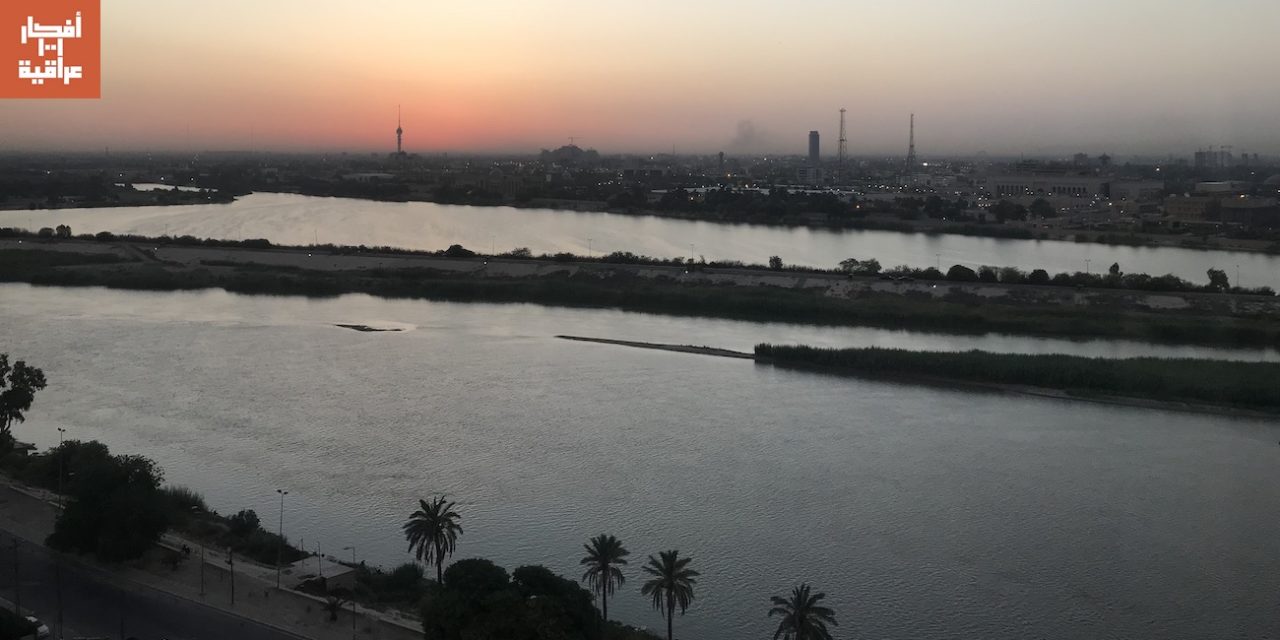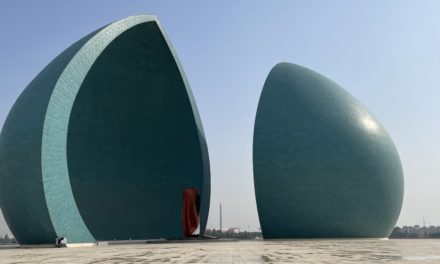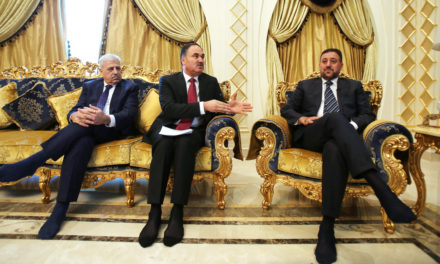Last year, I wrote that the continued fight against Da’ish, the relationship between Baghdad and Erbil and combating corruption posed the most significant and most pressing challenges ahead of Iraq in 2018. As we have entered 2019 under a new government, the hurdles facing Iraq have shifted more towards administrative challenges.
Concerning Da’ish, the Iraq Security Forces continue their mission to defeat remnants of the terrorist organization, which is scrambling to consolidate what little power it has left. A significant development in 2018 was the escalating air campaign the Iraqi Air Force was engaged in, targeting Da’ish members in Syria on the border with Iraq, which has proven to be effective. Having said that, Da’ish was still able to hit back with successful terrorist attacks, reemphasizing why it is vital that Iraq continues its military operations, as well as addresses the extremist ideology through well-thought-out programs such as media campaigns and community and youth engagement.
As for the relationship between Baghdad and Erbil, there has been some welcome progress. A lot of the negative effects of the Kurdish independence referendum have been reversed, and dialogue is not only continuing but increasing and has led to some breakthroughs, like the central government helping in paying Kurdish employee salaries and the resumption of oil exports from Kirkuk. Budget shares, disputed territories, and military cooperation remain differences that need to be addressed, but the election of Barham Salih as President of Iraq is an assurance that the relationship between the two should not deteriorate to the lows of 2017 when resolving remaining differences. Furthermore, Masoud Barzani’s visit to Baghdad and his meetings with once regarded foes was another sign that all sides are willing to move on after the disastrous consequences of the referendum.
Regarding corruption, there is little to show for any decline. An important reason for why that is, is the focus on attaining power by the political parties rather than focusing on resolving corruption. This was evident during the political crisis after the May 2018 elections, which has crept into 2019 as Prime Minister Adil Abdul-Mahdi’s cabinet remains incomplete. Another problem is that corruption is deep-rooted in the state and will takes years to achieve progress in tackling it. Last but not least, Iraq lacks expertise in combating corruption, and that needs to change to be effective in this battle. Without the knowledge and a plan with short and long-term goals, fighting corruption will remain an empty promise.
The primary challenge ahead of Iraq in 2019 is administrative. The lack of administrative skills and expertise has an incredibly damaging impact on governance and Iraq’s economy. While Iraq is without a doubt a rich country, the wealth it has is not managed effectively. Despite the public sector being incredibly large compared to other countries, the state is still unable to fulfill its duties and provide or oversee the conveyance of services. Iraqis as people have lots of potential, but most Iraqi organizations do not have an environment that cultivates innovation, productivity, and accountability. A lot of corruption is strongly tied to the chronic bureaucracy that is suffocating the public sector. If we look at any of Iraq’s major problems, we can see the administrative angle in all of it.
During Saddam’s era, the ‘Ba’athification of society’ policy was destructive and all the administrative powers of the state were used to control society and allowing Saddam and his clan to keep their thrones. This policy only empowered the security apparatuses and Iraq’s military capacity and neglected all the other sectors in the state.
After the collapse of Saddam’s regime in 2003, the political elite elected to run the country afterward did not hold much expertise in governance. Learning to run a state is challenging and even more so in the aftermath of the American invasion, with the country facing continuous crises. In an attempt to control the situation, the political parties sought to hire loyalists, clan and family members under the excuse that these people can be trusted more than associates and supporters of the former regime. The problem is not only that the new hires did not have the required expertise, but it also allowed clientelism and nepotism to grow monstrously, which enabled an atmosphere strongly supportive of the notorious quota system.
Furthermore, the already administrative expertise existing in the country was too limited and not up to the challenges of instability, corruption, and violence. The competent and honest people fled the country or were targeted, while Ba’ath party loyalists with experience used their knowledge to undermine the new system aiming to make the political process collapse from within, in the hope of once more returning to power under a new disguise.
Iraq’s problem with poor administration also has cultural roots. Management studies are just not appreciated and hence disregarded as a profession to young people. In Iraq’s culture, the prestige is reserved for the likes of medicine and engineering, leaving other specializations lacking the participation of Iraq’s best and brightest. As a result of this culture, there is less investment put into improving management schools. This eventually leads to less competent leaders who are incapable of being managers and having the administrative capacity required in running a functioning bureaucracy and prosperous society. The problem is multifaceted and complicated, but it is not a new challenge. What has made it significant in 2019 more than years before it, is that it has never been seriously addressed, even though any progress in this area is key to resolving many of Iraq’s shortcomings?
The administrative challenge takes a different meaning in 2019. When Prime Minister Adil Abdul-Mahdi took office, he promised to run the country in a better way by hiring technocrats for key government posts. Sadly, he was not able to keep his promise. Only a few of his ministers are technocrats, while the rest have come or failed to reach power based on the same old mechanisms of the notorious quota-system that does not pay much attention to competency. If we want to progress in Iraq, we need to pay attention to improving the administrative skills of the people running the country. Iraq is in need of good administrators as much as it is in need of great leaders with vision.

Muhammad Al-Waeli
Muhammad Al-Waeli is a Ph.D. candidate in management focusing on leadership and reform in Iraq.










